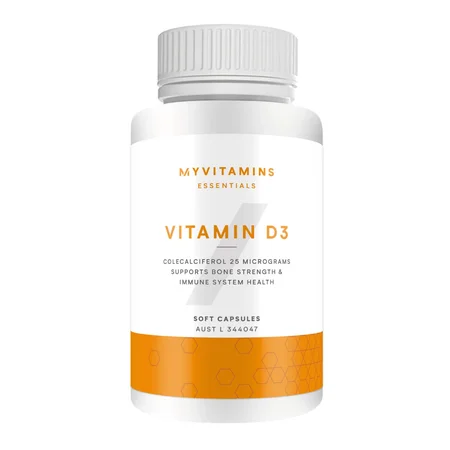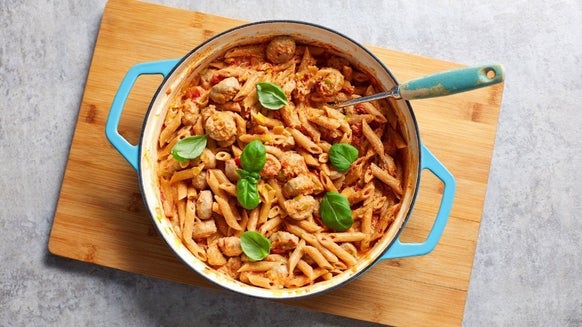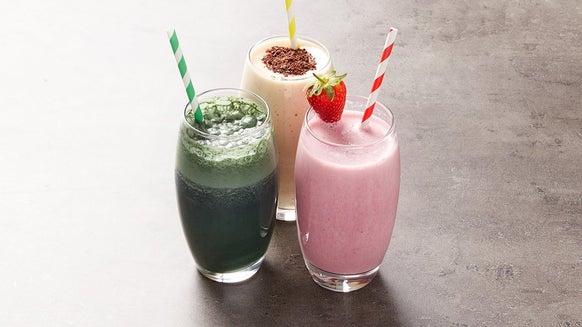
Iron. It's often talked about, but not in depth. It is in fact one of the most important minerals for the body, and its intake should not be overlooked.
Iron’s on the agenda for this instalment of Nutritionist Explains. Nutritionist and Myprotein product developer Katie Brown is here to explain everything you need to know about iron, its importance and the risks of deficiency.
What is iron?
Iron is found in all our cells but mostly in the red blood cells. You may or may not remember from GCSE biology that red blood cells are responsible for carrying oxygen from our lungs to the other organs. Your iron status affects the activity of the heart, liver, and muscles, as well as the actions of nerve impulses. So iron is responsible for a bit more than you might realise.
It's also an essential component of haemoglobin, a protein that transfers oxygen from the lungs to your tissue. Iron is also a component of myoglobin, which is another protein that provides oxygen, and supports muscle metabolism and healthy connective tissue.

Minimise Bloating & Improve Gut Health With Nutritionist Approved Supplements
#guttok has got nothing on Katie....
Something you may not know is dietary iron has two main forms — haem and non-haem. Haem is an iron-containing compound that forms the non-protein part of haemoglobin.
Plants and iron-fortified foods contain non-haem iron only. This particular type of iron must be broken down by acid in the stomach before it can be absorbed.
Iron deficiency
Iron deficiency, or anaemia, affects a significant amount of the global population. Roughly 25% of the entire world’s population is anaemic. For this reason, we should be well versed in all things iron. Too little iron affects the number of red blood cells in our body, and — as red blood cells ferry oxygen round your body — fewer red blood cells mean limited oxygen flowing to your organs and tissue.
But don’t fret — iron deficiency is gradual. It progresses from depletion of your iron stores — having a mild iron deficiency — to iron deficiency anaemia, which is more severe. Your symptoms will also vary depending how severe your deficiency is, but normal symptoms associated with iron deficiency anaemia are pale skin, fatigue, dizziness and weakness.
All humans lose a small amount of iron when going to the toilet and through their skin, but these amounts are tiny, and the body can cope with it. Certain other groups are at a much higher risk of deficiency than others. Women who bleed monthly through menstruation are more at risk. Pregnant women are also more at risk due to the increase in red blood cell production to sustain a growing baby.
And people with gastrointestinal disorders are at higher risk as they may experience poor absorption of iron combined with loss of iron from their gastrointestinal tract. This combination can lead to a negative iron balance.
Iron supplements
Ensuring your iron intake is strong can be difficult, especially through your diet alone. It can also be a particular challenge for people following plant-based, non-animal and flexitarian diets as they are not eating some of the richest sources of iron — like red meat.
This is why it may be worthwhile taking an iron supplement. Most iron supplements contain what’s known as the ferrous variety of iron. This variant is highly soluble and easier for your body to use.
Other supplements to keep an eye out for would be combinations containing vitamin B12 and vitamin A, which can both help support iron metabolism. Copper supports the transportation of iron around your body, helping it to reach your cells and tissues, and vitamin C improves iron absorption. What a combo.
Can you take too much iron?
So how much iron is too much? And is that even a thing? Surprisingly, yes. While our bodies can store surplus iron, it is possible to exceed the recommended dose. Symptoms of too much iron include constipation, nausea and stomach pain.
Take home message
So there we have it. Now we’ve ironed it all out, you should be up to speed. If you’re concerned about your iron intake or levels, you should always check in with your doctor just to be sure. But as you now know, iron is responsible for much more than many of us realise, so it’s important to keep on top of your intake, whether that’s through supplements or through your diet.
GET MORE FROM KATIE HERE:










